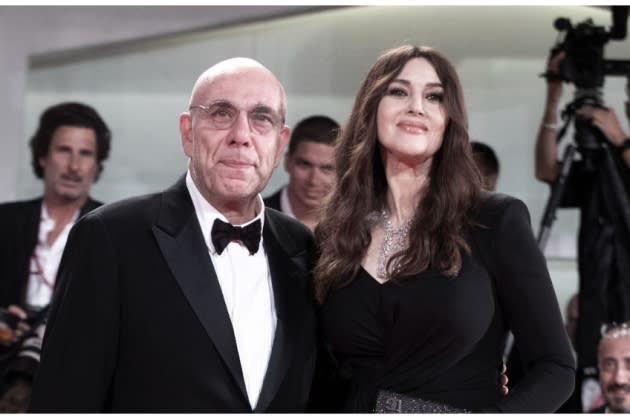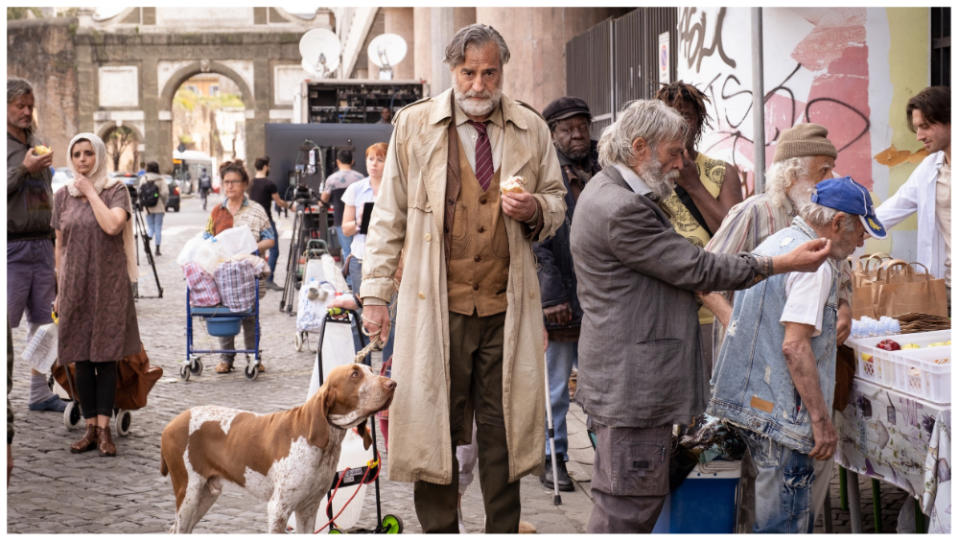Director Paolo Virzì on How the Pandemic Permeates Dystopic Dramedy ‘Siccità’ in Which a Long Drought in Rome Has Dried Up the Tiber
- Oops!Something went wrong.Please try again later.
- Oops!Something went wrong.Please try again later.
- Oops!Something went wrong.Please try again later.
- Oops!Something went wrong.Please try again later.

Italian director Paolo Virzì (“Human Capital,” “Like Crazy”) is in Venice where his dystopic drama “Siccità,” which means drought in Italian, is premiering out-of-competition. The innovative pic, which features an A-list ensemble cast comprising Monica Bellucci, Sara Serraiocco (“Counterpart”) and Silvio Orlando (“The Young Pope”), is set amid a protracted drought caused by climate change in the Italian capital where the Tiber has dried up.
Virzì spoke to Variety about how “Siccità” germinated during COVID-19 and was shot amid tight pandemic protocols. Excerpts.
More from Variety
'Victim' Review: A Mother's Love and a Son's Lie Expose a Community Corroded by Hate and Politics
Children's Books and Graphic Novels Lead the Pack at Venice's Book Adaptation Rights Market
Venice Prizewinner Alice Diop on the Haunting Nature of 'Saint Omer'
You worked with novelist and screenwriter Paolo Giordano on the concept and the script for this film. How did the collaboration start?
I knew Paolo, but it’s not like we had ever worked together. I knew him a bit as a writer and during the pandemic I read his articles in Corriere della Sera about what was happening at a time when there were lots of different fears going around. His voice sounded very clear and lucid to me. Besides being a writer he is a scientist. So I asked [producer] Mario Gianani to put us in touch and we had these long chats on Skype, about what was happening. I liked having his opinion as a scientist, as well as an author. We also started chatting about the fact that we were wondering: ‘What will happen to our work?’ I remember we had this discussion between us about whether in a year we would have forgotten everything and would no longer want to know anything about it or not. We also wondered whether the pandemic would leave wounds and scars that would remain forever. And we began to imagine a film set after this thing: what would the world be like?

Simply put, the pandemic has heightened the alarm on climate change and related problems such as water scarcity.
Exactly. We tried to imagine the world not far from now due to hydrogeological instability. We tried to imagine what Rome would be like with people almost dying of thirst, which is not that unrealistic a few years from now. There was also a desire to make a very crowded film, a film with lots of different storylines and people. Perhaps because we were isolated and separated. So we came up with this crazy bunch of characters whose lives intersect over the course of three days in Rome in a scenario of alarm over both an environmental and a health crisis. And through this we tried to talk about what we were experiencing.
Narratively the film has occasionally bursts of the supernatural. It’s pretty inventive.
Well we veered off from realism, initially saying: ‘Let’s imagine a reality that has not yet happened. And it’s not necessarily going to happen.’ So we set it in an almost dystopian world in which there is a dialogue with the dead. And we also played a bit with tones that go from tragic to slapstick. I like mixing tragedy with ridicule.
What was it like shooting during the pandemic?
Paradoxically we wanted lots of people on screen and this was very complicated. It’s kind of funny. There were two types of extras: The “swabs,” who had done a rapid swab COVID test, and the “PCRs,” who had done the more reliable test. The “PCRs” could stand close to each other; the others had to be kept a meter and a half apart. And the real boss on set was the COVID manager. I would do a swab everyday and the PCR test twice a week. One day, while I was shooting in a camera car. The manager tapped me gently on the shoulder and told me I was positive. I had to leave the set for 20 days, but after five or six days the production put monitors in my room and I directed from there.
Best of Variety
'The Sopranos' Gets the Funko Pop Treatment in New Collectibles Release
From 'The Sandman' to 'Blonde': Books Made Into Movies and TV Series That You Should Read
Jennette McCurdy's Provocative Book 'I'm Glad My Mom Died' Is Already a No. 1 Bestseller
Sign up for Variety’s Newsletter. For the latest news, follow us on Facebook, Twitter, and Instagram.

